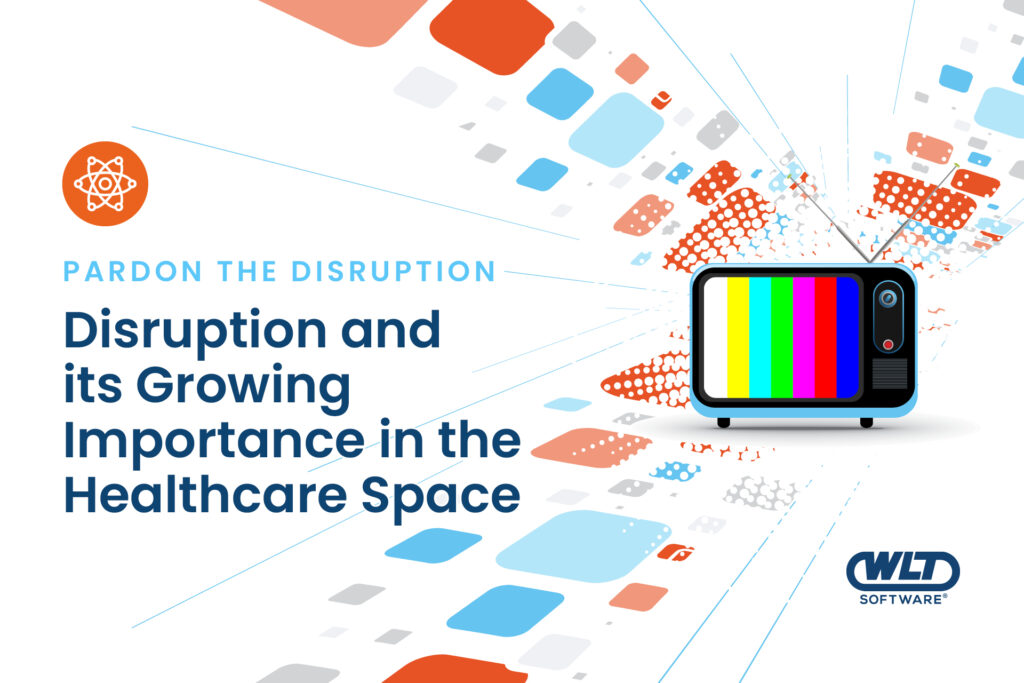The ConnXion Volume 02, Issue 2
If there’s anything consistent about the healthcare space, it is that prices continue to rise. Even with the measures taken to combat these ever-increasing costs, the financial weight of healthcare only seems to grow heavier day by day, and along with it, the need for a solution.
It’s high time that we disrupt these rising costs—and disruptive innovation in healthcare is poised as the perfect answer.
What is Disruption in Healthcare?
Disruption refers to “a disturbance or problems which interrupt an event, activity, or process” — or, “radical change to an existing industry or market due to technological innovation.”1 When it comes to healthcare, we’re taking the second definition into account. With medical costs constantly rising, some “radical change” is much needed in the healthcare space.
In the healthcare industry, disruptive innovations are normally aimed at meeting needs that have not been previously met or addressed by the market.2 Marking a departure from the status quo, disruptive innovations focus on bringing about fundamental changes and often creating new markets. Disruptive innovation in healthcare has the potential to shape both patient care and the patient experience, changing them for the better.
How Disruption Takes Shape
The key to disruption in the healthcare space is to get innovative. What might begin as a low-end product or service can disrupt an entire industry if used effectively. There are many areas for potential disruption, but the major player, and perhaps the most relevant, is technology.
Technology has been supported as an area of disruptive innovation in healthcare for some time now but only recently has the focus shifted to using that technology to improve the patient experience. Technology that shapes patient experience for the better, providing caregivers with new ways to approach patients and deliver that care, can have a dramatic effect on the healthcare space—and rising costs.3
One of the larger—and more evident—disruptive innovators in healthcare is Artificial Intelligence. While AI has the potential to disrupt quite a few industries, healthcare stands as a major area of change. From surgery aid to patient check-in and chatbots, AI is positioned to make radical changes in the healthcare space, particularly with medical data such as electronic health records and clinical research data.4 However, despite the time and energy innovators have put toward AI, progress remains slower than expected. As a result, there is still plenty of room for technology to grow to truly disrupt the healthcare space.
Using Technology to Transform
Regardless of its progress so far, technology remains the area with the greatest potential to disrupt the healthcare space—primarily, the use of data to transform and improve people’s health. As previously mentioned, disruption innovation in healthcare doesn’t have to be a large, outlandish new development. It can be the utilization of something simple, if previously overlooked, to radically transform how we approach the patient experience. One potential disruptor is especially simple—it turns the focus on sleep.
Take SleepScore Labs. By using data intelligence to improve the sleep of billions of people, they are focusing on improving patient physical, mental, and emotional well-being through actionable and personalized sleep insights. With the goal of building a strategic advantage that positions them as a trusted and preferred sleep improvement resource, SleepScore looks to help people achieve better long-term health through their work to improve sleep.5
It’s a simple concept—improving sleep to improve health. However, it has the potential to dramatically improve patient well-being (and general patient moods). This is a prime example of disruptive innovation in the healthcare space, tapping into underutilized areas and using them to their fullest potential to improve patient health—which, of course, will only lower the cost of healthcare down the road, saving employers on medical bills they would have had to pay otherwise.
At WLT, we’re in full support of disruptive innovation. The healthcare space needs a shakeup, and we’re dedicated to supporting our clients and partners in the ongoing quest to lower medical costs. WLT’s flexible offerings provide our partners with the ability to get innovative themselves, providing patients with new options and even better care.
So, start with some disruption of your own—and discover how WLT’s superior systems and claims administration software services provide custom solutions to meet your specific needs.
Resources:
- Oxford Languages – Disruption
- https://www.outsourceaccelerator.com/articles/disruptive-innovations-in-healthcare/
- https://www.aha.org/disruptive-innovation-opportunities-and-challenges
- https://www.softeq.com/blog/disruptive-innovations-in-healthcare-use-cases-and-benefits
- https://www.sleepscore.com/why-trust-us/?rfr=ssl-top-nav#linkto-mission
